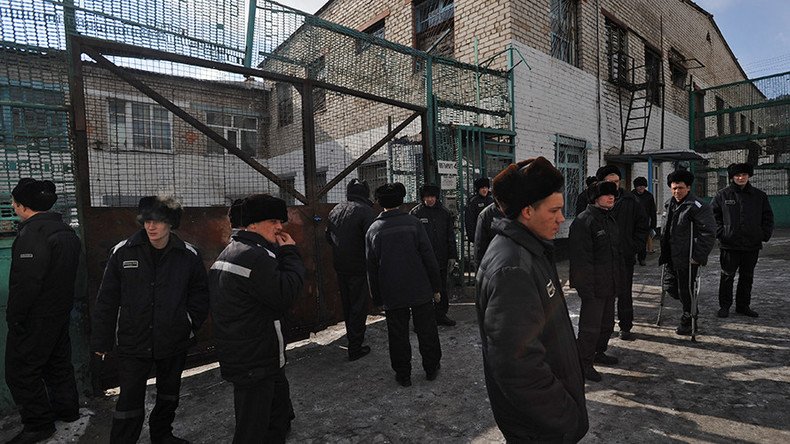Duma softens bill on prison rules to include suggestions from rights advocates

Russia’s Lower House has passed a bill limiting the use of physical force, weapons, and ‘special means’ at penal colonies that incorporates proposals from Human Rights activists aimed at minimizing the potential damage caused by such corrective actions.
“The main purpose of the bill is to ensure that the convicts’ rights are protected from unjustified violence. The new edition of the bill aims to minimize the consequences of applying physical force and assure that timely medical aid is provided to all injured,” the chairman of the State Duma Committee for Security, Vasily Piskarev, said in comments with TASS.
The commission’s deputy chairman, Ernest Valeyev, explained that lawmakers had amended the bill to bring it in line with norms proposed by rights’ advocates. These include a requirement to provide medical aid to injured inmates and allow doctors to document and report those cases. The bill also introduces restrictions on the use of “special equipment,” from rubber truncheons to tasers and firearms, and requires that CCTV or portable video cameras record cases in which “special equipment” is used.
The bill also states that prison guards should not execute orders from their superiors to apply force or use ‘special means’ when these orders are clearly illegal. Use of force is only permitted when the disobedience of the inmates poses a threat to the lives or health of prison personnel or any other person. A separate article seeks to minimize collateral casualties by banning prison workers from using firearms in the midst of large gatherings of people.
When the parliament was still discussing the bill a few weeks ago, the Russian penal system was hit by a major scandal, when political activist Ildar Dadin accused penal colony officials of torture and threats in a letter to his wife, who later published it on Facebook. Dadin, who is serving a sentence for repeatedly violating rules governing street rallies, wrote that he was being repeatedly beaten, and was once “kicked by 12 men.” He also alleged that the wardens had him suspended by handcuffed arms and threatened to allow the other inmates to rape him. Moreover, he claimed that the warden of the colony told him he would be “killed and buried by the fence” if he complained.
The Justice Ministry’s Directorate for Execution of Punishment – the agency that runs Russia’s system of prisons and penal colonies – has launched an investigation into the allegations. Human rights officials, including ombudsman Tatyana Moskalkova and members of the Presidential Council for Human Rights, requested all materials concerning Dadin’s case and his time in the prison colony and later told reporters that these requests had been fully met.
The results of the investigation, which were released in late November, stated that Dadin’s claims had no basis in fact. The Justice Ministry’s spokesman, who presented the findings to reporters, noted that the investigation, which was carried out jointly by officials, rights advocates, prison and ordinary doctors, had concluded that Dadin was nothing more than “a very talented mimic with exceptional artistic ability and great imagination.”
In the first two weeks of December, a delegation from the Council of Europe’s Committee for Prevention of Torture visited many Russian prisons, penal colonies, pre-trial detention centers, and closed psychiatric institutions in order to assess the measures taken to fulfill the recommendations issued earlier by this body. The committee is expected to present a report based on this visit’s findings in a few months’ time.













